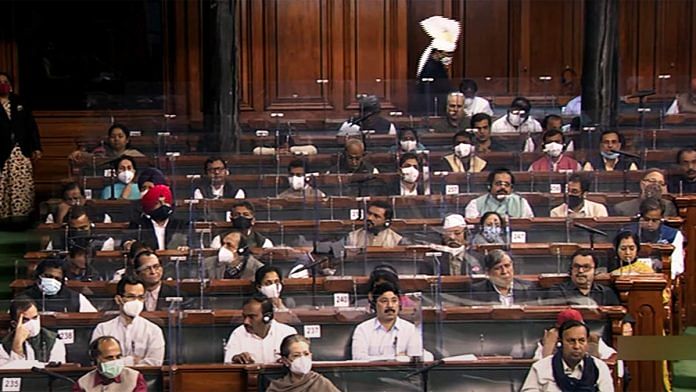What comes to mind when we imagine a cutting-edge, tech-savvy workplace? Certainly not Parliament, a place synonymous with cacophonous, unruly, and hidebound legislators. But recent advances in technology, especially Artificial Intelligence, have attracted them too. Why you may ask. AI-based tools have the ability to parse an unlimited amount of data, recognise patterns and apply them to new information. This allows legislators to have a dialogue with large constituents, analyse diverse opinions, participate remotely in plenary and committee meetings, and reduce paperwork through digitisation.
Where is India in this picture? The ambitious National eVidhan (NeVa) Project, launched in 2015 under the Digital India Programme, plans to digitise legislatures and use AI-based tools to analyse information.
A systematic study of innovations in other countries, looking at pros and cons, could help India prepare its own blueprint. Below is an exploration of key innovations across the world and their relevance to India.
Also Read: India needs politicians who understand tech, not lawyers who double up as IT ministers
Digitising information
Digital data depositories are at the very least required to use AI technologies. Most countries have created such depositories of Bills, questions, debates, and parliamentary proceedings. Parliament does have it, but many of the state Legislative Assemblies and Councils are lagging behind.
Provisioning for Virtual parliament
Virtual or e-parliament is an idea whose time has come, accelerated by the Covid-19 pandemic. According to the latest World e-Parliament Report, by the end of 2020, 65 per cent of legislatures were holding virtual or hybrid committee meetings and 33 per cent plenary meetings. Surprisingly, the most nimble parliaments were not only from the developed world but included countries such as Estonia, Namibia, and Brazil. In fact, Estonia, a thinly populated, small country approximately the size of Haryana, is considered to be most efficient in implementing e-parliament.
India missed the boat on this during the pandemic. It is now developing an app to facilitate the work of its legislatures, first piloted in Himachal Pradesh. But as of February 2021, only about half the states had signed MoUs to digitise their legislatures.
Also read: One ally that will help the new BJP or Congress govt create jobs – Artificial Intelligence
Assistance to legislators
Legislators deal with a variety of subjects. Most mature democracies have research staff earmarked for legislators in addition to well-stocked libraries.
Many Parliaments are now experimenting with AI-powered assistants. South Africa is exploring the use of chatbots to assist legislators while Japan’s AI tool assists in the preparation of responses for its legislature. Austria’s EULE Media Monitor finds, filters and visualises content relevant to MPs. Estonia’s HANS, an AI-based speech recognition support tool, can transcribe plenary sessions of Parliament.
India could certainly benefit from such an innovation given the limited institutional research support for legislators. An electronic system for tackling research queries could add immense value to the work done by MPs and MLAs.
Engaging with electorate
Elected representatives need to communicate with citizens and vice versa. Traditionally, they keep their ears to the ground through rallies, open houses, surveys, and the media. But legislators are increasingly turning to digital tools. Brazil’s Chamber of Deputies has developed a set of machine learning services like Ulysses to support transparency and citizen participation. Similar tools are operational in the United States (POPVOX), France (Assembl), and Luxembourg (Mindool). They allow a large number of users to participate in brainstorming sessions. The discussions are then analysed to provide a sense of common themes and ideas or show which ideas are popular.
AI tools also help in keeping tabs on lawmakers. Projects like the Flemish Scrollers detects politicians in Belgium when they get distracted and start using phones during proceedings. It posts them on Twitter and even tags the relevant politician.
India’s legislators manage huge constituencies averaging about 15 lakh people. AI-based tools could allow them to communicate with a wider set of voters and analyse their opinions. And citizens would certainly appreciate a tool like the Flemish Scrollers as lawmakers have been caught dozing or watching porn during an ongoing session.
Also Read: SC wants artificial intelligence to reform medical education, asks Nandan Nilekani to help
Policymaking process
Some countries are experimenting with AI-based tools for legislative drafting and using their algorithms for making predictions. The US House of Representatives introduced an AI tool to automate the process of analysing differences between Bills, amendments, and laws. The Netherlands has used AI-based tools to evaluate legislative drafts and verify whether drafting requirements have been met.
A tool can now predict quite accurately which US Congressional Bill will pass in the legislature. Using just the text of the Bill and a dozen other variables, the algorithm can determine the probability of a Bill becoming law with great precision.
Many of the routine but cumbersome steps in India’s complex policymaking process could be automated. AI assistants could plough through large volumes of texts – speeches, Bills, questions — and find patterns. It could also be used for legislative drafting, which is currently a long-winded and somewhat opaque process.
The pandemic provided the impetus for many parliaments to shift some operations online. As India builds capacity towards that goal, it needs to map what activities AI can perform better and develop relevant tools or use existing ones. However, it should also be mindful of the pitfalls of AI-powered decision-making – biases, quality of data, and opacity. Policymaking in India would undergo a profound transformation if the government is able to harness the power of AI in an open, transparent, and citizen-friendly manner.
Kaushiki Sanyal is the CEO and Co-Founder, Sunay Policy Advisory Pvt. Ltd. She is the Co-Author of Artificial Intelligence and India (Oxford India Short Introductions), 2020. Views are Personal.
(Edited by Srinjoy Dey)



